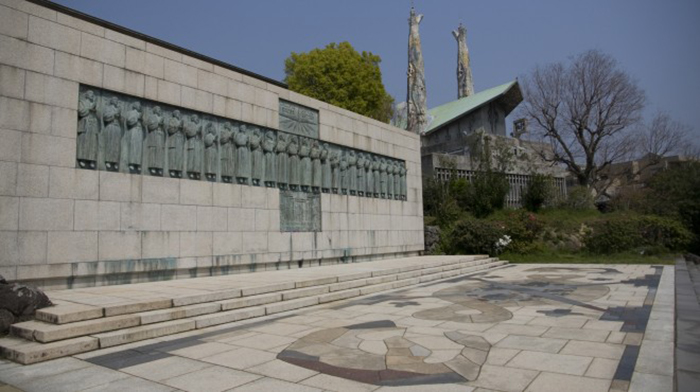Joaquim Magalhães de Castro
Even at the risk of evading the theme of this series of chronicles, we find it important to refer here to the cruel fate reserved for Jerónimo de Angelis and Diogo de Carvalho. Both were martyred in the name of the faith they professed, therefore deserving the beatification of Pope Pius IX on 22 July 1867. Let us now go to the last chapter of their lives.
As has already been said here, between 1623 and 1624 the Christianity of the Hokkaido region was the target of severe persecution, thus projecting in the north of the archipelago what had previously happened in the south.
Jerónimo de Angelis, now in hiding, soon found that his presence and his proselytism seriously harmed the neophytes and therefore decided to surrender himself to the authorities who sent him to Edo with this cruel destiny: sentence to death.
On the morning of December 4, 1623, he and fifty other prisoners emerged from the dungeon where they were and, as was customary, were led in a long procession through the liveliest quarters of the city to the place of execution.
Angelis, the Spanish friar Galvez and a Japanese priest, mounted on horseback, led the group of Christians flanked by soldiers armed with spears.
The date was not chosen at random: there were then gathered in the capital of the empire a large number of feudal lords, who thus dissuaded themselves from any future sympathy for the Namban faith which so many people had previously seduced. This was, in fact, the reason why the usual place of execution in Asakusa had not been chosen, but rather a pleasant open space beside a wooded hill where the residents spent their free time. The authorities wanted to gather as many spectators as possible to watch the tremendous act.
Tied to wooden poles, the condemned people succumbed, one after the other, victims of the flames of the fifty fires that were lit that afternoon; and this, under the gaze of the three priests who were obliged to witness the torture of their flock before their own execution.
It was not long before the time came for Diogo de Carvalho, who had taken refuge in the mountains in the company of eleven Christians. They were denounced by the footprints in the snow, which one day had fallen more heavily, and it would not be long before the henchmen of the damio of Sendai captured all of them.


 Follow
Follow


